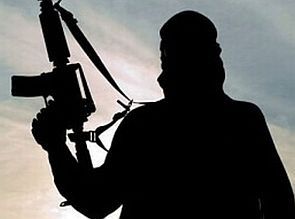 Darbhanga was for long the operations command centre for Indian Mujahideen. But now, details have emerged about how Kolkata has been a preferred destination for the terror outfit.
Darbhanga was for long the operations command centre for Indian Mujahideen. But now, details have emerged about how Kolkata has been a preferred destination for the terror outfit.
Yasin Bhatkal’s interrogation gives a complete picture of the Kolkata module.
Bhatkal told the National Investigation Agency team that there are 8 modules in West Bengal, including a major one in Kolkata.
These modules have been in place since eight years now.
Barring an attack on the US consulate in 2002, which was carried out in the name of the Students Islamic Movement of India, these modules have not been activated for any other major terror strike.
When the IM began taking shape, they roped in Mohammad Jalaluddin to raise funds for the organisation. Jalaluddin, who hails from West Bengal, was arrested in Lucknow two years after he abducted a businessman named Partha Roy in 2007.
He told his interrogators that after the abduction, he left for Bangladesh where he met up with IM founder Amir Reza Khan.
‘I had contacts with the underworld and used their channels and routes to transport arms and ammunition to various parts of the country through Kolkata,’ he told the police.
NIA officials tell rediff.com that Kolkata is a logically suitable place for terror activities and till date there continues to be infiltration unabated from Bangladesh, which makes the job of the security agencies tough.
It has been noticed that most IM operatives have had a stint in Kolkata. They were extremely careful not to carry out any attacks in the city or other parts of Bengal since they did not want their cover to blow.
Moreover, the Kolkata module is extremely crucial for the IM. That’s because this module only supplies arms and ammunition, and also manages to pump in crores worth of fake currency.
Bhatkal, in fact, was once arrested in Kolkata in connection with a fake currency case and was let off since nobody knew about his importance.
During his interrogation, Bhatkal said that nearly 90 per cent of the fake currency was pumped in through the Malda in West Bengal.
Throwing more light on the pattern in which this module works, Bhatkal told NIA that they have outsourced operations across the state.
‘Each one works for the money and no questions are asked. We do not house any of the operatives coming in from Bangladesh or other countries in our safe houses of sleeper cells. We have chosen villages close to the border areas and outsourced the operation to some people over there,’ he said.
The NIA says that this is where the problem begins.
The person housing these operatives is paid Rs 5000 per operative. The persons who provide accommodation have no records in the police files, as they are not associated with any terror activity and hence are never on the radar.
Such operations are rampant in Malda, Murshidabad and Nadia, the NIA says.
What is even more worrying is that such a pattern has been in force since the last five years and none of the agencies even had a clue about the same.
In his duration, the IM would have ensured that at least 3,000 operatives would have infiltrated into India. The terrorists who have infiltrated are not only from the IM, but according to Yasin, also include cadres of the Lashkar-e-Tayiba, HuJI and Hizbul Tahrir.
Further while explaining the Kolkata module, Bhatkal says that the new association with the Hizbul Tahrir has made it mandatory for them to get the Kolkata module functioning.
All these years, the operations were slow and the module was never used to launch major attacks. However, due to the proximity of this module to Bangladesh and the fact that the HT operates from there it becomes important to operationalise this module, he says.
The HT and the IM came together at the behest of the Lashkar in order to fight the cause of the Rohingya Muslims and the Bodhgaya blasts was one such example of this association.











 © 2025
© 2025